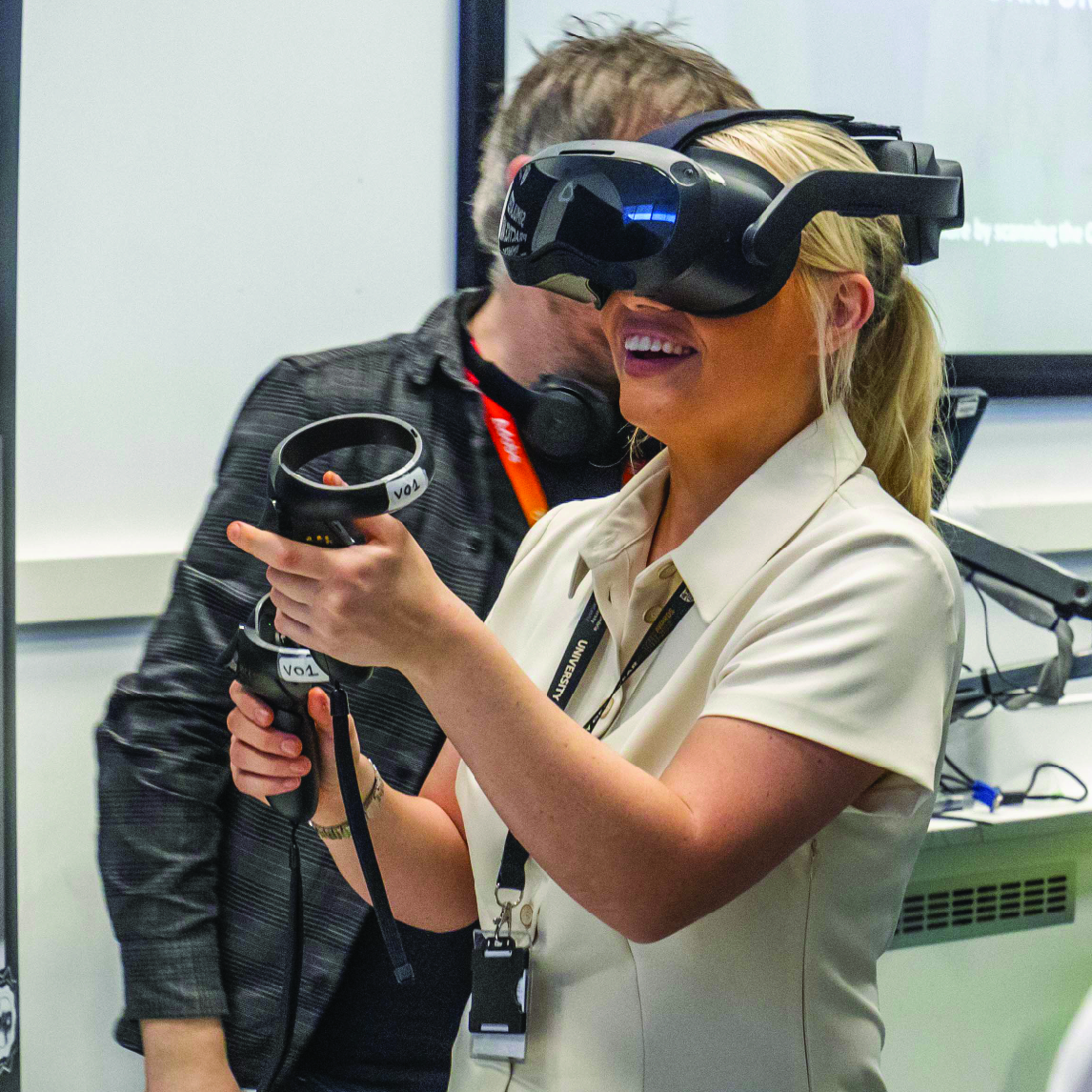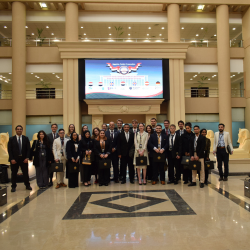-
Study
-
Quick Links
- Course Search
- Unlock Your Potential
- Still time to Apply
- Higher and Degree Apprenticeships
- Continuing Professional Development
- Still time to apply
-
Undergraduate
- Course Search
- Application Guides
- UCAS Exhibitions
- Foundation Years
- Fees and Funding
- School & College Outreach
- Information for Parents
-
Postgraduate
- Course Search
- Application Guide
- Postgraduate Research Degrees
- Flexible Learning
- Fees and Funding
- Change Direction
- Register your Interest
-
Student Life
- Students' Union
- The Hub - Student Blog
- Accommodation
- Northumbria Sport
- Support for Students
-
Experience Northumbria
- Open Days & Events
- Virtual Tours
- Campus Tours
- Life in Newcastle
-
-
International
International
Northumbria’s global footprint touches every continent across the world, through our global partnerships across 17 institutions in 10 countries, to our 277,000 strong alumni community and 150 recruitment partners – we prepare our students for the challenges of tomorrow. Discover more about how to join Northumbria’s global family or our partnerships.
View our Global Footprint-
Quick Links
- Course Search
- Undergraduate Study
- Postgraduate Study
- Information for Parents
- London Campus
- Northumbria Pathway
- Sign up for Information
-
International Students
- Information for Students
- International Events
- Application Guide
- Entry Requirements and Education Country Agents
- Global Offices
- English Requirements
- English Language Centre
- International student support
-
International Fees and Funding
- International Undergraduate Fees
- International Undergraduate Funding
- International Masters Fees
- International Masters Funding
- International Postgraduate Research Fees
- International Postgraduate Research Funding
-
International Partners
- Agent and Representative Network
- Global Partnerships
- Global Community
-
International Mobility
- Information for Northumbria Students
- Information for Incoming Exchange Students
-
-
Business
Business
The world is changing faster than ever before. The future is there to be won by organisations who find ways to turn today's possibilities into tomorrows competitive edge. In a connected world, collaboration can be the key to success.
More on our Business Services -
Research
Research
Northumbria is a research-rich, business-focused, professional university with a global reputation for academic quality. We conduct ground-breaking research that is responsive to the science & technology, health & well being, economic and social and arts & cultural needs for the communities
Discover more about our Research -
About Us
-
About Northumbria
- Our Strategy
- Our Staff
- Place and Partnerships
- Leadership & Governance
- Academic Departments
- University Services
- History of Northumbria
- Contact us
- Online Shop
-
-
Alumni
Alumni
Northumbria University is renowned for the calibre of its business-ready graduates. Our alumni network has over 246,000 graduates based in 178 countries worldwide in a range of sectors, our alumni are making a real impact on the world.
Our Alumni - Work For Us
What will I learn on this module?
The module will give you the opportunity to complete either an independent research project of your choice on a topic in English language, linguistics or TESOL, or a practice-based project.
You will be working under the supervision of at least one member of staff either to plan, undertake and write up a small research project, or to reflect on your experience during a teacher-training course. You will learn how to plan, manage and organise a relatively large scale research or practice-based project. To successfully carry out your project, you will need to draw on skills and knowledge acquired during your programme. Throughout your dissertation project, you will learn how to identify interesting research questions and how to apply different data collection and analysis techniques to answer these questions.
The module will equip you with transferrable skills that are highly valued by employers including management, organisational and analytical skills.
You will be required to submit 3 formative assessments totalling 4,000 words (a research proposal, a critical bibliography and a research timeline/plan), and a 12,000 word final dissertation. As well as individual tutorials with your supervisor(s), there will be four two-hour research lectures to support you in your work.
How will I learn on this module?
The dissertation is mainly an individual project in which you are expected to carry out your own independent research or practice-based project. You will be given support to help you achieve this through a combination of supervisory sessions and taught dissertation sessions.
You will be assigned an individual supervisor who will advise you on the planning and execution of your project. You are expected to meet with your supervisor on a regular basis. Your supervisor will provide you with feedback on your formative assignments and also on a sample of draft work.
There will be four 2-hour dissertation sessions that you are expected to attend. The tutor-led sessions will be organised according to the typical stages of a dissertation project. The first session will inform you about the structure of a dissertation and how to formulate ‘good’ research questions. The second session will help you identify resources to draw on to support your work and how to write a ‘critical and coherent’ review of previous literature. The third session will introduce you to research ethics and you will be asked to complete an ethics form as part of your work. The final session will develop your knowledge about research design and will introduce you to a range of qualitative and quantitative data collection and analysis techniques.
All learning materials, tasks and readings for the four sessions will be posted on the e-learning portal (eLP) to facilitate full participation in the module.
How will I be supported academically on this module?
Academic support on this module will come primarily from your interactions with your supervisor during individual meetings. Dissertation sessions will provide you with essential skills and knowledge about dissertation issues such as research ethics and experimental design.
The module handbook, available through the e-learning portal will provide details of all the lectures, assessments and marking criteria. The eLe-learning portal will host information about the research process, in particular research ethics. Detailed assessment criteria will be provided for the dissertation, and sample dissertations will be made available to you via the portal. Links to dissertation guides and skills sessions will be provided but there are no set readings for this module.
In addition, you have a designated Personal Tutor throughout your studies. The academic side of the Personal Tutor’s role includes monitoring your ongoing academic progress, helping you to develop self-reflection skills necessary for continuous academic development, and directing you to further available services which can help you with your academic skills (e.g. the Library’s Skills Plus). You are advised to see your Guidance Tutor at least twice each semester to review your academic progress. Additional language support is also available from the English for Specific Academic Purposes (ESAP) programme offered by the language centre.
What will I be expected to read on this module?
All modules at Northumbria include a range of reading materials that students are expected to engage with. Online reading lists (provided after enrolment) give you access to your reading material for your modules. The Library works in partnership with your module tutors to ensure you have access to the material that you need.
What will I be expected to achieve?
Knowledge & Understanding:
• Conceptualise, theorise and undertake research which addresses complex issues and which advances understanding within the discipline or practice.
• Exhibit advanced and critical knowledge of language/language learning issues and contribute to the creation of new knowledge and /or applications to practice. .
Intellectual / Professional skills & abilities:
• Present research through an extended written argument, following appropriate academic conventions (for example written style, presentation, referencing)
Personal Values Attributes (Global / Cultural awareness, Ethics, Curiosity) (PVA):
• Demonstrate good academic practice in the conduct of primary and secondary research
• demonstrate awareness of ethical issues in relation to your research and ensure that research is compliant with university ethics policies and procedures
How will I be assessed?
Formative assessment
You will be expected to submit 3 formative assessments, totalling 4,000 words, and an ethics form as part of your work on the dissertation.
1. Research proposal
2. Critical review
3. Research strategy
You will receive formative feedback from your dissertation supervisor on all formative assessments
Your supervisor will provide informal formative feedback on your progress during supervision meetings. The number and maximum duration of supervisions is specified in the module guide
Summative (graded) Assessments
12,000 word dissertation. Detailed written feedback will be provided by means of a specific dissertation feedback form.
All dissertations will be blind double marked by two internal examiners. Both examiners will provide written comments. The examiners will agree the final mark that the student will receive.
Pre-requisite(s)
none
Co-requisite(s)
none
Module abstract
This module is a student-centred module in which you will design, plan and conduct your own independent project. You can choose to carry out either a research project on any English language, linguistics or TESOL topic that interests you, or a practice-based project based on your reflections during a teacher-training course.
Throughout the process, you will learn the basic principles of research design and strategy, including how to formulate valid ‘researchable’ problems/questions and how to conduct and manage research. You will develop an appreciation of different approaches to research and an awareness of the range of research methods and tools available for the study of language/language learning. The practice-based project options will draw on and develop your abilities of critical reflection on practice.
The module will help you develop essential academic and study skills, including in managing data, and conducting and disseminating research in a way that is consistent with both professional practice and the normal principles of research ethics.
In the process, you will also develop transferrable skills including management, organization and communication skills. These skills are crucial for your career and personal development.
Course info
Credits 60
Level of Study Postgraduate
Mode of Study 2 years Part Time
1 other options available
Department Humanities
Location City Campus, Northumbria University
City Newcastle
Start September 2025
All information is accurate at the time of sharing.
Full time Courses are primarily delivered via on-campus face to face learning but could include elements of online learning. Most courses run as planned and as promoted on our website and via our marketing materials, but if there are any substantial changes (as determined by the Competition and Markets Authority) to a course or there is the potential that course may be withdrawn, we will notify all affected applicants as soon as possible with advice and guidance regarding their options. It is also important to be aware that optional modules listed on course pages may be subject to change depending on uptake numbers each year.
Contact time is subject to increase or decrease in line with possible restrictions imposed by the government or the University in the interest of maintaining the health and safety and wellbeing of students, staff, and visitors if this is deemed necessary in future.
Useful Links
Find out about our distinctive approach at
www.northumbria.ac.uk/exp
Admissions Terms and Conditions
northumbria.ac.uk/terms
Fees and Funding
northumbria.ac.uk/fees
Admissions Policy
northumbria.ac.uk/adpolicy
Admissions Complaints Policy
northumbria.ac.uk/complaints









